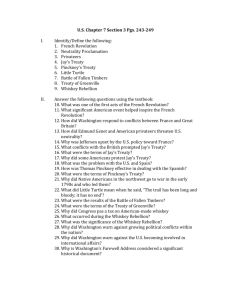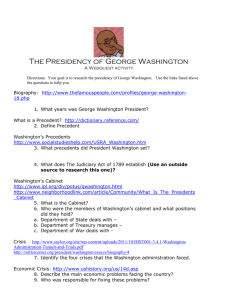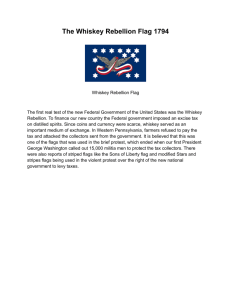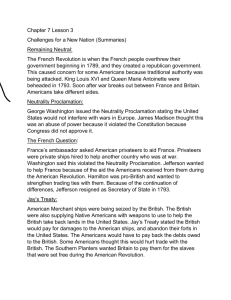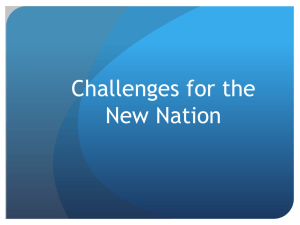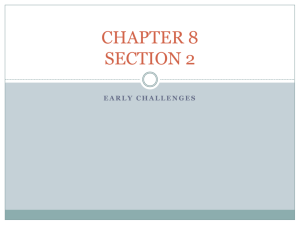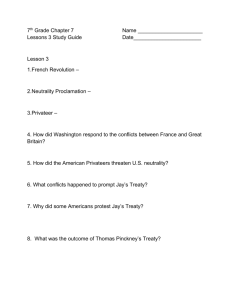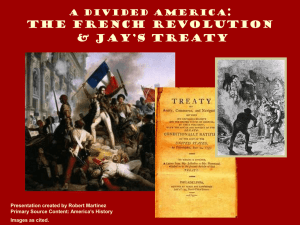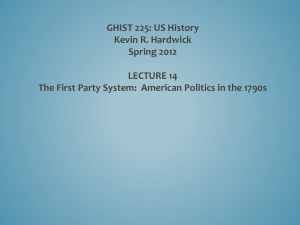US Challenges Under Washington: Neutrality & Rebellion
advertisement
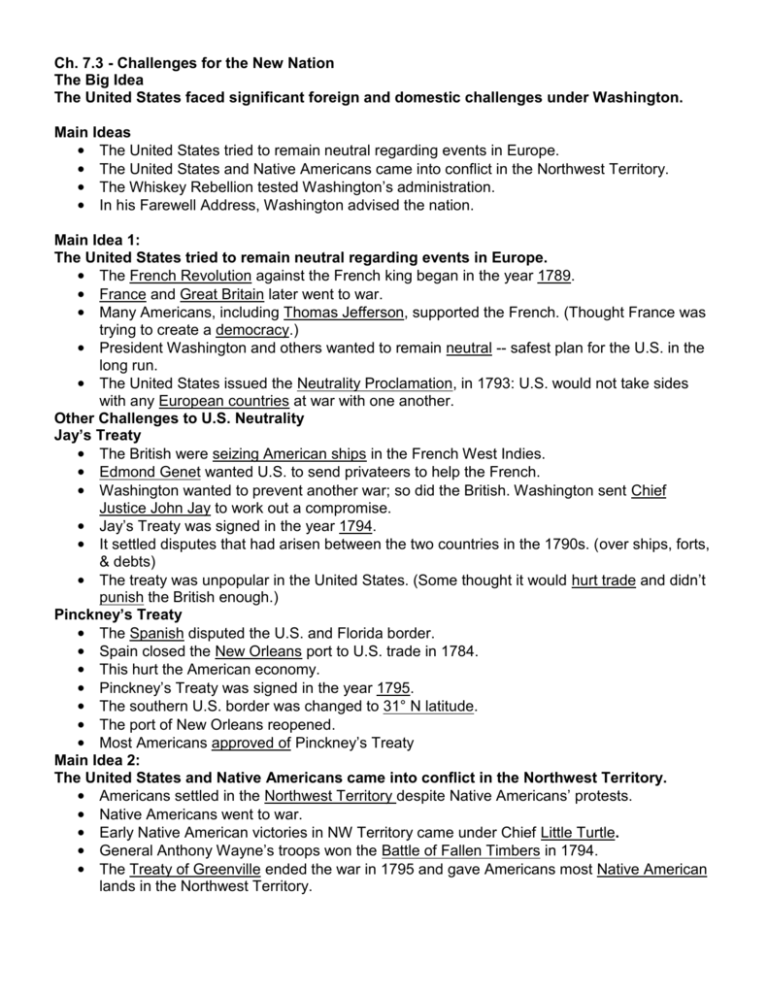
Ch. 7.3 - Challenges for the New Nation The Big Idea The United States faced significant foreign and domestic challenges under Washington. Main Ideas • The United States tried to remain neutral regarding events in Europe. • The United States and Native Americans came into conflict in the Northwest Territory. • The Whiskey Rebellion tested Washington’s administration. • In his Farewell Address, Washington advised the nation. Main Idea 1: The United States tried to remain neutral regarding events in Europe. • The French Revolution against the French king began in the year 1789. • France and Great Britain later went to war. • Many Americans, including Thomas Jefferson, supported the French. (Thought France was trying to create a democracy.) • President Washington and others wanted to remain neutral -- safest plan for the U.S. in the long run. • The United States issued the Neutrality Proclamation, in 1793: U.S. would not take sides with any European countries at war with one another. Other Challenges to U.S. Neutrality Jay’s Treaty • The British were seizing American ships in the French West Indies. • Edmond Genet wanted U.S. to send privateers to help the French. • Washington wanted to prevent another war; so did the British. Washington sent Chief Justice John Jay to work out a compromise. • Jay’s Treaty was signed in the year 1794. • It settled disputes that had arisen between the two countries in the 1790s. (over ships, forts, & debts) • The treaty was unpopular in the United States. (Some thought it would hurt trade and didn’t punish the British enough.) Pinckney’s Treaty • The Spanish disputed the U.S. and Florida border. • Spain closed the New Orleans port to U.S. trade in 1784. • This hurt the American economy. • Pinckney’s Treaty was signed in the year 1795. • The southern U.S. border was changed to 31° N latitude. • The port of New Orleans reopened. • Most Americans approved of Pinckney’s Treaty Main Idea 2: The United States and Native Americans came into conflict in the Northwest Territory. • Americans settled in the Northwest Territory despite Native Americans’ protests. • Native Americans went to war. • Early Native American victories in NW Territory came under Chief Little Turtle. • General Anthony Wayne’s troops won the Battle of Fallen Timbers in 1794. • The Treaty of Greenville ended the war in 1795 and gave Americans most Native American lands in the Northwest Territory. Main Idea 3: The Whiskey Rebellion tested Washington’s administration. Reaction to Whiskey Tax • In 1791 Congress passed a tax on American-made Whiskey • People in areas like western Pennsylvania were angry and protested what they thought was an unfair tax. • Whiskey was a cash crop to western Pennsylvania farmers. • Farmers were angry that cases about the law were tried in district courts, often far away from the people affected. Whiskey Rebellion Is Crushed • Fighting broke out in the year 1794. • Washington led an army against the rebels, but the Whiskey Rebellion ended without a battle. Main Idea 4: In his Farewell Address, Washington advised the nation. • Wanted to leave public life in 1796 • Wrote Farewell Address to the people with THREE WARNINGS: • Warned against dangers of foreign ties (alliances) • Warned the nation to work out its political differences • Warned against too much public debt Label the map, and answer the Skill question.

